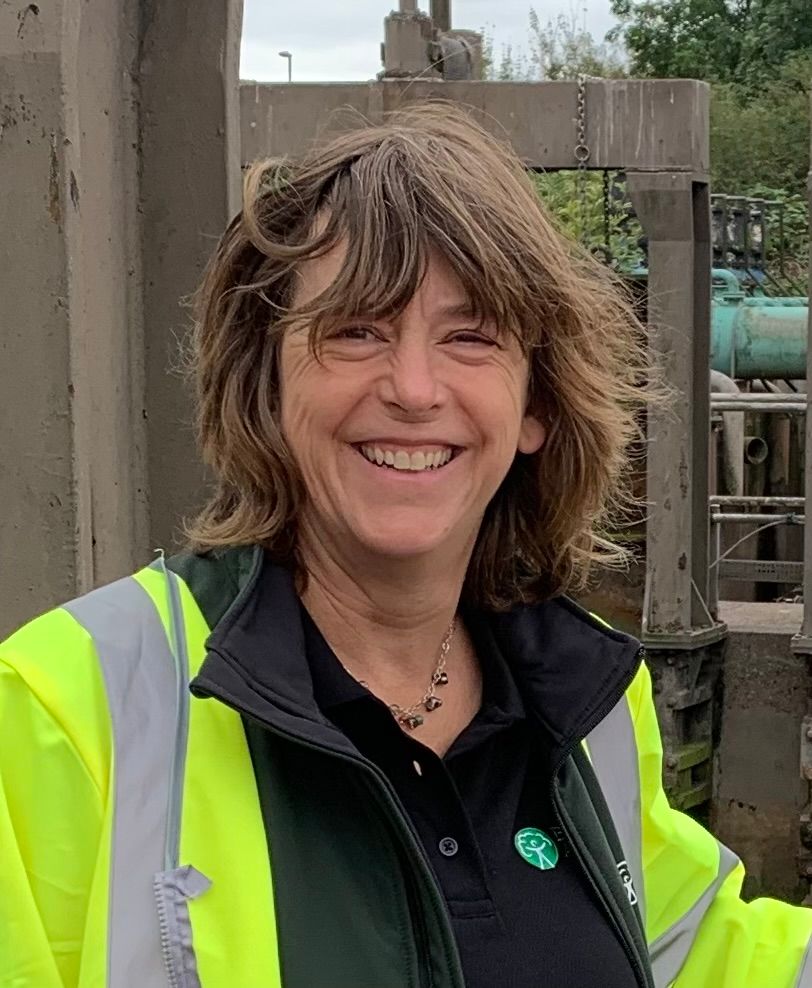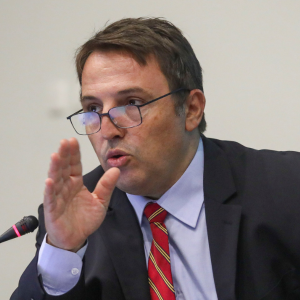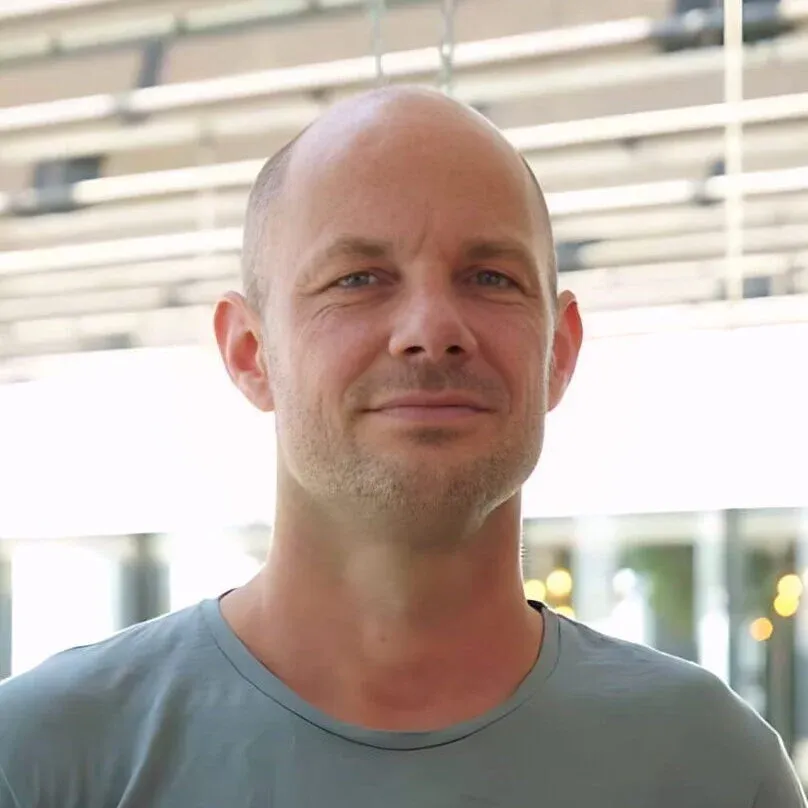-
British Water is hosting its highly regarded International Reception, returning once again in partnership with the World Water-Tech Innovation Summit.
Join us for an evening of meaningful conversations, strategic networking, and cross-border collaboration in advance of the summit.
Open to all summit attendees. Requires ticket purchase.
-
Reserved for utility leaders, this networking breakfast is a great space to exchange insights and tackle shared operational challenges. From economic volatility and policy shifts to environmental imperatives and the rise of AI-driven technologies, utilities face both headwinds and transformative opportunities.
Join likeminded peers for candid dialogue and networking on how these dynamics intersect with day-to-day realities, and what strategic responses look like in practice. Bring your toughest challenges and leave with fresh perspectives, actionable ideas, and connections that can help shape your organisation’s future.
Open to all utility leaders attending the summit.
-
- Rapid advancements in AI are colliding with climate pressures, inflation and regulatory shifts, opening new pathways for volatility management and innovation. What integrated approaches to resource planning and operational decision-making are emerging as a result?
- How are governance and operational structures evolving to support the rapid adoption of emerging technologies, and what barriers must be overcome to enable meaningful transformation?
- With traditional business models built around long-term, low-risk capital cycles, what financing mechanisms are emerging to support faster, more flexible investment in digital capabilities? How can utilities balance stability with the need for agility?
- What do water customers expect for their money, and how can technology help utilities meet evolving customer demands around service reliability, transparency, and efficiency to justify investment and build trust?
-
- What role do policymakers play in shaping a regulatory environment that supports resilience and sustainability across the water supply chain? How can this support compliance to stricter environmental standards and promote progress toward energy neutrality?
- How can regulators balance the deployment of emerging technologies with effective risk management? What are the key differences in regulatory approaches across the global regions?
- What governance models are regulators adopting to support Integrated Water Resources Management (IWRM) in a digitally evolving landscape?
- What lessons can be drawn from global regulatory initiatives, such as Ofwat’s Innovation Fund or the US EPA’s AQUARIUS program, in unlocking investment, de-risking innovation, and incentivising sector-wide improvement?
-
Hear from exciting early-stage start-ups pitching their technologies that solve challenges across the water sector. Innovators have 3 minutes each to give a snapshot of their solutions.
Featured start-ups: Smart Actuation, Inobiostar, Zoi, Molendotech
-
- As the sector shifts from network expansion to asset renewal, how can utilities and engineering companies improve the accuracy of condition data and boost delivery productivity to ensure investments deliver maximum ROI?
- How are water utilities rising to the challenge of delivering major capital programmes while managing delivery risk and maintaining cost realism? What should we expect from the UK’s AMP8 cycle, which brings unprecedented investment levels and pressure to modernise infrastructure?
- What does the technology stack need to include to effectively map assets, monitor performance and track key efficiency outcomes across potable and wastewater networks? How can utilities ensure interoperability across legacy systems and new platforms to overcome data fragmentation and enable a unified view of asset performance?
Host -
Hosted by:
-
- How are advanced technologies helping utilities reduce pressure on ageing infrastructure amid more frequent extreme weather events? What strategies can accelerate the deployment of these solutions?
- How can smart systems and improved integration between operational and information technology transform legacy infrastructure and storm overflows? What role does real-time monitoring play in improving responsiveness and enabling smarter water management?
- How can technologies such as SCADA, digital twins, IoT, sensors ML and AI converge to anticipate network stresses, and decrease non-revenue water (NRW)? What potential does AI-backed modelling and early warning systems play in enabling proactive flood control measures?
-
Hosted by:

-
- As freshwater quality declines and demand rises, how is the sector advancing reuse strategies to meet tightening pollutant regulations, and ensure a safe, sustainable supply? What can we learn from the countries and regions leading the way?
- How are utilities and industries navigating the energy, chemical, and infrastructure demands of reuse? What innovations are helping reduce resource intensity, and how can decentralised wastewater treatment systems support zero-liquid discharge goals to tackle scarcity?
- With treatment costs exceeding those of freshwater abstraction, what technologies or business models are improving the economics of reuse?
-
Hosted by:
 Host
Host
-
This session features a presentation on cutting-edge, evidence-based approaches to water recovery, showcasing the potential of decentralised and internal recycling systems, municipality or industry-led initiatives, and circular supply chain redesigns to become scalable solutions for a water-scarce future.
-
NEW! Join us for a dynamic showcase of breakthrough innovation in the water sector, featuring early and growth-stage companies. This session will spotlight the most exciting technologies and business models shaping the future of water, while exploring their paths to commercialisation.
Through real-world case studies, discover how these companies are navigating fundraising in a complex economic landscape, meeting investor expectations, and addressing industry needs. A panel of experts will assess the potential for deployment and partnership, offering a perspective to scalability and impact.
Host -
Hosted by:

-
- Private equity firms and strategic investors are actively building and acquiring companies in the water sector – so what makes a water- tech company valuable to buyers, and what does sustainable start-up growth look like?
- What signals and metrics help investors separate value from hype in water-tech? From proven performance and customer traction to financial discipline, how can start-ups demonstrate credibility to attract serious investment and plan for successful exits?
- What alternative capital pathways, such as blended finance, are needed to support sustainable long-term growth and credible exit opportunities?
-
Let’s raise a glass to a great first day, and to 15 years of innovation, collaboration, and impact in water technology! You’re invited to join us in the exhibition area for networking drinks and the chance to unwind and continue the day’s conversations in a relaxed setting.
-
NEW! Join for a morning of meaningful networking and conversations celebrating the women driving innovation and impact across water. Through real stories from women who’ve built meaningful careers in water and candid discussions on mentorship, resilience, and building inclusive networks, we’ll explore how we can collectively support the next generation of diverse female talent. Open to all women attending the summit.
Speakers
-
- Water utilities face the dual challenge of responding to immediate shocks while also delivering on long-term net zero goals. What strategic priorities are emerging to build operational agility, safeguard supply chains, and ensure service continuity in times of uncertainty?
- With 2030 net-zero targets looming closer for UK utilities, what progress has been made and what can still be achieved in a 5-year period? Where do we go next?
- How can technology drive greater transparency and accountability, and where should research and strategic partnerships focus to build resilience?
- How can new financing models beyond traditional grants incentivise and de-risk the transition toward sustainable water management and net zero?
-
- How are nature-based solutions (NbS) redefining water resilience strategies in climate-vulnerable regions, particularly around drought resilience, watershed restoration, biodiversity, and carbon sequestration?
- How are technologies such as remote sensing, MRV, and AI supporting the credibility and scalability of NbS in water management?
- Government investment in NbS continues to grow, but what frameworks and metrics are needed to assess watershed health and measure NbS performance in order to standardise valuation and unlock further capital? How can we create water-based ecosystem services that generate both ecological and financial returns?
-
Hosted by:

-
- How are leading food and beverage companies shaping their water stewardship commitments, moving from internal efficiency to basin-level resilience? What’s driving this shift?
- What tools and platforms are companies using to measure, manage, and replenish water?
- What are the biggest barriers to scaling local water projects and creating watershed-level impact, and how can we unlock more effective collaboration models to overcome fragmentation in stakeholder engagement, without slowing down project delivery?
- How are ESG investors, regulators, and utilities responding to corporate water commitments? What governance or financial mechanisms could accelerate progress?
Speakers
-
This presentation highlights Flood View, web-based AI application developed by IBM with the University of Illinois and the U.S. National Park Service, combining AI-driven weather forecasting and high-resolution flood simulations to identify risk areas earlier and enable faster, safety decisions for resilience.
-
Innovation and behaviour change to secure a sustainable water future
-
Strengthening water systems to withstand climate extremes and new pressures
-
Assessing and responding to the effects of climate change on your organisation
-
Unlocking insights from flow meters and NB-IoT
-
The role of data and AI for sewer asset management in Europe
-
Shaping Tomorrow’s Systems Through Tech & Innovation
-
- What innovations in PFAS destruction technologies are emerging in response to tightening regulations, and how are they helping meet stricter compliance standards?
- With Extended Producer Responsibility (EPR) shifting the financial burden to polluters, what are the ESG implications, and how are different sectors addressing the challenge of treating complex chemical formulations?
- Where are the biggest opportunities for public-private partnerships to tackle PFAS at scale, and how can broader industry collaboration ensure accountability, verify chain of custody, and accelerate collective action?
-
-
- What scientific breakthroughs are currently shaping water research, and how can they be translated into real-world water-tech solutions? Where should we prioritise R&D investment to innovate at the pace needed to address key challenges?
- What are the key barriers to translating scientific breakthroughs into practical applications? What finance mechanisms are needed to support innovation translation?
- What have we achieved in the last 15 years, and how can universities, corporates, and utilities collaborate more effectively to bridge the R&D to impact gap?
)


















































































)
)
)
)
)
)
)
)
)
)